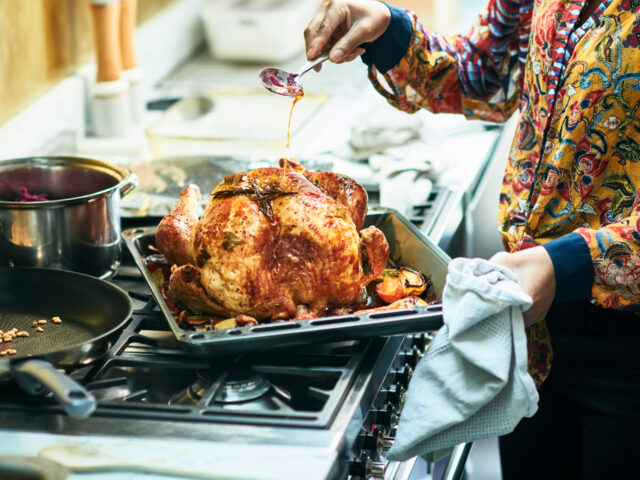Turkey, pork, and other Christmas day staples have all seen price spikes of around 20 per cent or more amid Britain’s inflation crisis.
A traditional Christmas dinner is likely to be out of the financial reach of many this holiday season, with one trade union association reporting that the essential components of the meal have risen by over 20 per cent on average while wages have largely stagnated.
While Britain’s ruling Conservative (Tory) Party hikes taxes and limits spending, many in Britain have been left unable to afford necessities, with many single parents going so far as to skip meals in order to keep their homes warm for the sake of their children.
Such individuals are likely to find little relief in the holiday season, with the Trades Union Congress (TUC) claiming that the overall costs of Christmas dinner staples have risen by around 18 per cent on average.
Some items however have risen substantially more than that, with both turkey and pork seeing a rise of around 20 per cent, while the base cost of ingredients needed for cranberry sauce is reportedly up as much as 33 per cent.
Considering that wages in the country have only risen by an average of 5,7 per cent, the TUC warns that many will be left unable to properly celebrate Christmas due to it becoming largely unaffordable for them.
“Christmas should be a time for celebration,” the union’s general secretary, Frances O’Grady, remarked. “Everyone should be able to enjoy turkey and all the trimmings while they relax with their family.”
“But soaring food and energy prices mean many families will struggle to afford the festivities,” she continued.
“And the fact is many workers are dreading the new year.”
The trade union federation also noted that, with the massive spike in energy costs, the price of preparing the average Christmas dinner has also risen dramatically.
However, for those struggling to afford their Christmas dinner, this element is likely to be of little concern compared to the problem of heating and powering their home.
According to the Office for National Statistics (ONS), households were left paying an average of 88.9 per cent more for electricity, gas, and other fuels back in October — a shift that has left many workers struggling to feed themselves, let alone pay their bills.
Many single parents have now even resorted to skipping meals entirely in order to properly care for their children, while one of Britain’s largest food bank networks expects to distribute 1.3 million food parcels over the coming months.
Even healthcare has been hit by the crisis, with over one-quarter of trusts operating within the framework of Britain’s socialised National Health Service (NHS) setting up food banks for their own staff, many of whom are also skipping meals in a desperate attempt to save money.

COMMENTS
Please let us know if you're having issues with commenting.